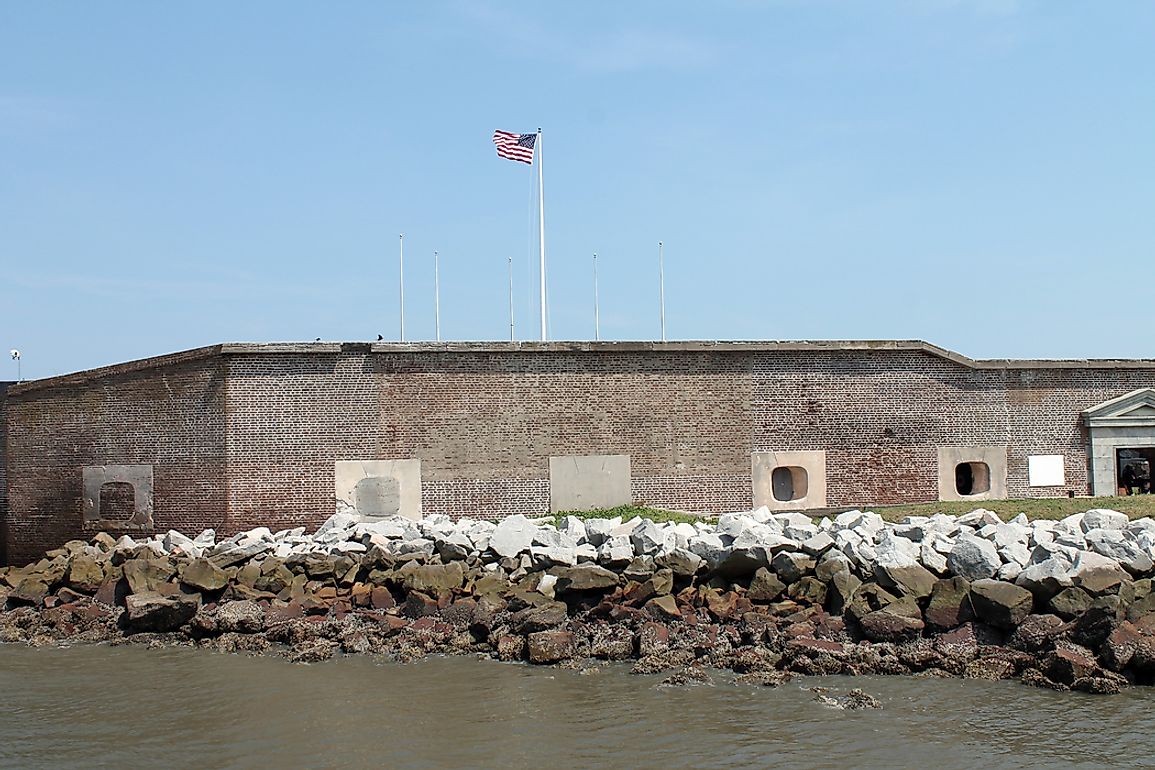The Battle of Fort Sumter - American Civil War

Why Did They Attack Fort Sumter?
The Battle of Fort Sumter occurred on April 14, 1861. The battle occurred in Charleston, South Carolina, where the United States’ federal military’s Fort Sumter was located. Several important events occurred to lead to this first armed confrontation of the American Civil War. On December 26th, 1860, Major Robert Anderson moved US Army personnel into Fort Sumter, subsequent to South Carolina’s secession from the Union following the announcement that Abraham Lincoln had won the United States Presidential Election of 1860. Following South Carolina’s lead, six other Southern states seceded from the Union over the course of the next 6 weeks, and would form a “Confederate States of America”.
Claiming authority over the area, on January 9th, 1861, South Carolina authorities seized Federal property in Charleston Harbor. On April 12th, Confederate batteries began to bombarded Fort Sumter, where Anderson and his Army were based. Two days later, Anderson and his command surrendered, and a surrender ceremony was held. Virginia, Arkansas, Tennessee, and North Carolina seceded during April and May to join the Confederacy as well. In other states and territories, sympathizers and local governments mobilized troops and pledged their support for the Confederate cause. From that point on, tensions escalated around much of a nation that now found itself in the throes of a war pitting brother against brother. In other words, this event has an important legacy in American history in that it is considered the beginning of the American Civil War.
Key Players
Major Robert Anderson led the US Army units which were at the center of the conflict of Fort Sumter. P.G.T. Beauregard was in command of the Confederate States Provisional Forces that took the fort. Abraham Lincoln had been sworn in as American president by the time of the event, and Francis W. Pickens, as Governor of South Carolina, endorsed the Fort Sumter bombardment.
The Dispute That Started the Battle
The conflict that caused the battle involved South Carolina demands for the removal of the US Army personnel stationed in Fort Sumter, following Major Robert Anderson’s relocation of his Army forces from what was perceived as an unsafe Fort Moultrie on Sullivan’s Island to a seemingly more secure Fort Sumter. The authorities in South Carolina saw this as an intrusion onto their state property, no longer recognizing the United States Federal governments authority over them, and acted to secure Charleston Harbor from the Federal US Army’s control. The South Carolinian authorities seized Federal government property, including the destruction of the Star of the West ship that was chartered to restock the Anderson's new base in Fort Sumter.
How Many People Were Killed In The Battle of Fort Sumter?
Despite President Abraham Lincoln’s notification to South Carolina’s Governor, Francis W. Pickens, that he was sending more supplies to Anderson’s army, the governor immediately notified Anderson and his command to evacuate Fort Sumter. Anderson refused, and this angered Pickens, who commanded the Confederate Provisional Forces to commence bombing Fort Sumter at around 4:30 a.m. on April 12th, 1861. 34 hours after the bombardment began, Major Anderson agreed to surrender, and he and his men evacuated Fort Sumter. Surprisingly, there were no deaths on either side during the bombardment period, though two Confederate Provisional military personnel died accidentally during the April 14th, 1861, surrender ceremony.
What Is The Significance Of The Battle Of Fort Sumter?
The Battle of Fort Sumter resulted in President Lincoln’s call for 75,000 volunteers to join the United States’ military forces to try and suppress the rebellion in the Confederate States. During this time, four more slave states from the Southern United States seceded, declaring formal terminations of loyalty to the United States of America, and joining the Confederacy. The rebellion of the Confederate States started through the action of bombing Fort Sumter, and this action itself ultimately started the Civil War. Four years of constant conflict between the Confederate States’ forces and the US Federal forces began in Charleston Harbor with the surrendering of Fort Sumter. Since 1948, Fort Sumter has been maintained by the National Park Service as Fort Sumter National Monument, which also includes Fort Moultrie on Sullivan’s Island.











